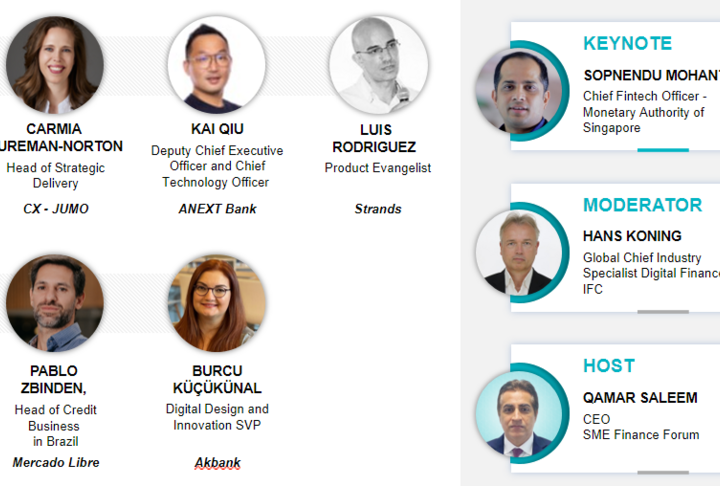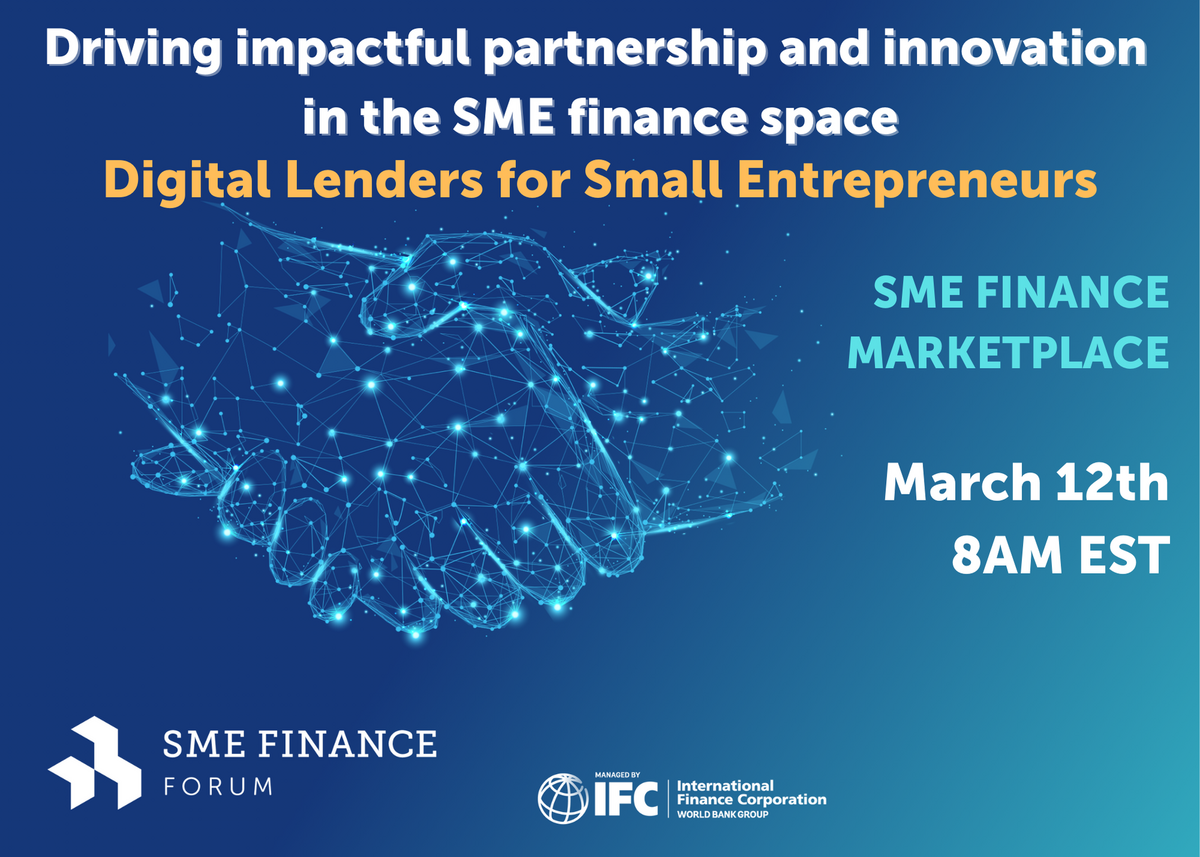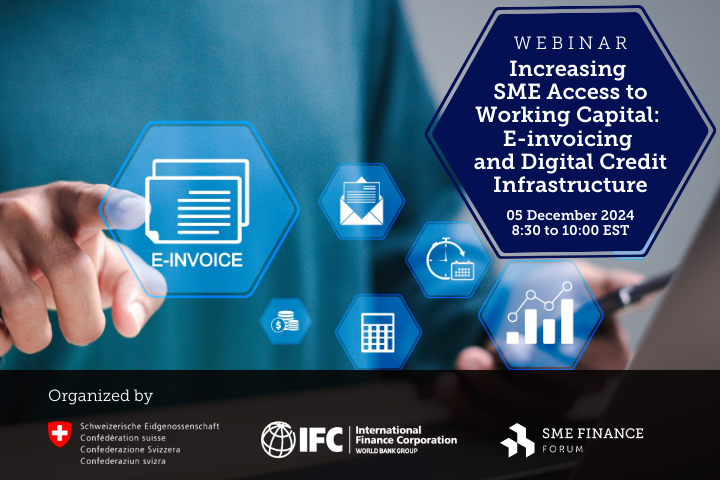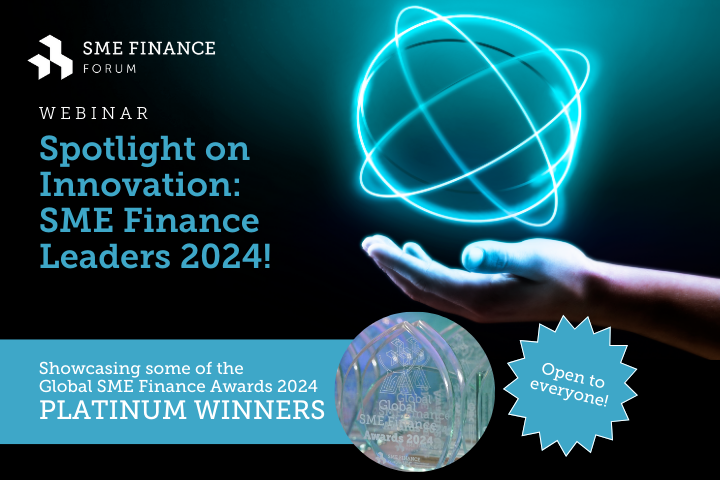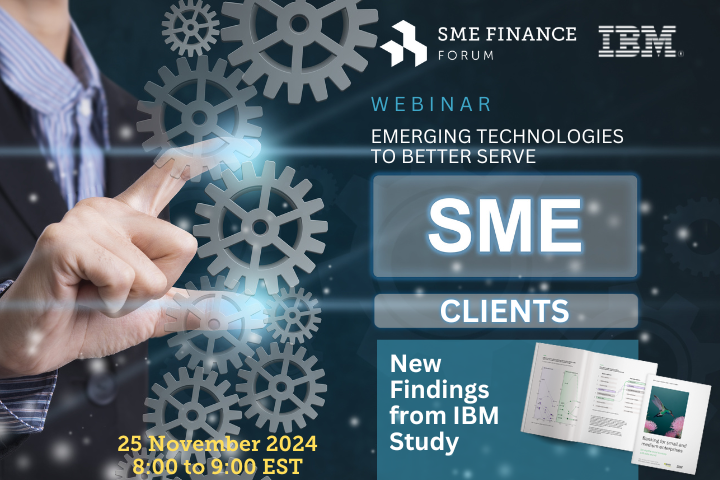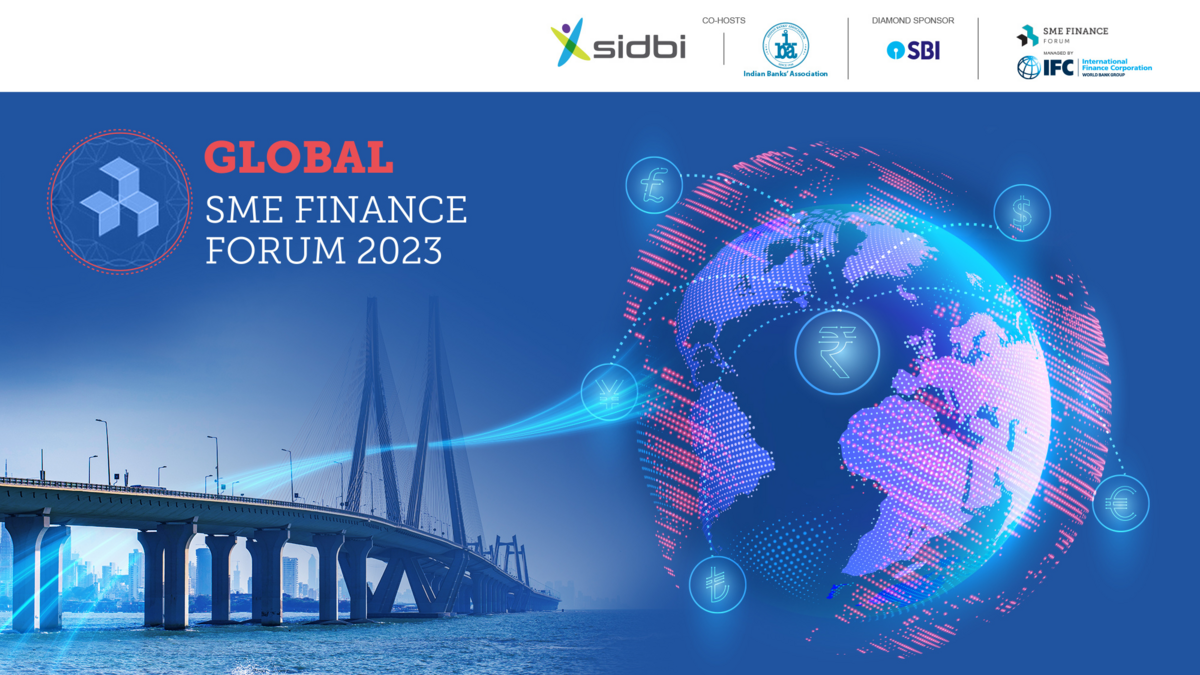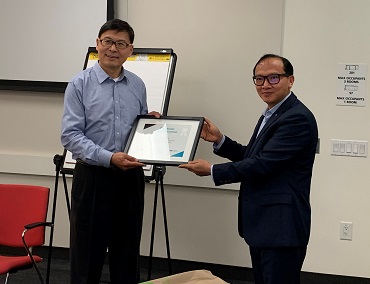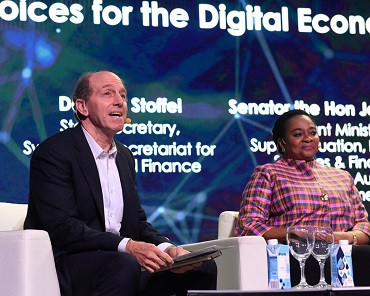Blog
DeFi Vs. CeFi: The Future of Fundraising for SMEs

This is an open webinar summary.
Decentralized Finance (DeFi) and Centralized Finance (CeFi) have been one of the most trending subjects of discussion in the industry since 2018. Often understood as a blockchain-based form of financial technology that removes intermediaries when offering financial instruments, DeFi no longer relies on a third party to manage transactions. Hence, this new FinTech model of de-intermediation and peer-to-peer transaction is expected to be more transparent and accessible to the users, attracting an increasing number of startups, venture capitalists, and traditional financial institutions. Martin Quensel (Centrifuge), Radoslav Albrecht (Bitbond), Gloria Wu (Ontology), and Wes Geisenberger (Hedera Hashgraph) joined the panel to share their experience with DeFi and discuss how this module will create opportunities for financing early-stage projects that were often neglected by previous financial services.
To start off the session, the panel discussed the differences between DeFi and CeFi. DeFi emerged in 2018 as a financial instrument to better trade Bitcoins and other cryptocurrencies. As the business activities in crypto space significantly increased over the past few years, the DeFi products and services have also experienced exponential growth. The pioneers have already established a crypto ecosystem that is similar to the current centralized ecosystem but more powerful in a decentralized way, Martin Quensel said.
Technologies that are not operated by a single player will become the determinative factor in a decentralized system. Mediated by the smart contract programs, the transactions will be proceeded directly between participants. These DeFi protocols are not monopolized by a few companies or individuals but built by a community of developers and maintained based on their consensus. In addition, the new system is bringing about new business cases.
One of the most noticeable changes is that people are now the owners of their assets and no longer need intermediaries to manage their bank accounts. They have more freedom to access their tokens or other forms of cryptocurrency with full control.
Secondly, blockchain has created several standards, such as EIP-20, that interact with each other and become components of the larger ecosystem. The composable nature of a decentralized system will be translated to more flexibility and potential in SME financing. Centrifuge is a network aiming to provide access to cheap and fast financing for SMEs and stable yield for investors. Enabled by Proof-of-Stake blockchain, Centrifuge users can bring their assets on-chain as non-fungible tokens (NFT). And through Tinlake, an investment app similar to an open marketplace of real-world asset pools, the investors are allowed to look through the pools offered by Asset Originators and invest in the ones that interest them. Unlike traditional finance, Centrifuge empowers its clients to launch permissionless, global and transparent transactions with its own CFG token.
Radoslav Albrecht shared his insights into the future development of digitizing real-world assets for startups and small businesses. In the traditional public capital market, the financing tools are exclusively accessible to corporates with more than $100 million annual revenue. The companies need to go to banks who act as arrangers to connect them with retail or institutional investors before transactions. However, tokenization lowers this barrier for the SMEs to enter both local and global economic arena. With the new technology, smaller businesses are enabled to showcase their potential to attract investors and make public bond offering or public stock offering. Regulations also play a critical role in the financial market by fostering technological developments in many cases. For example, Germany recently introduced Electronic Securities Act, which legally allows the dematerialization of all kinds of bonds. Before, companies needed to go through Central Security Depository (CSD) to issue bonds as public offering. But the new legislation enables the issuers to decide whether the security will be issued through a CSD or an Electronic Security Depository (ESD). The Act also opened the door for the potential issuance of other forms of financial instruments, including security tokens. SMEs are now able to utilize technologies to issue tokenized stocks and bonds in compliance with local regulations as well. Tokenization has already become a reality in many countries except for Germany, so the regulatory environment needs to advance hand in hand with financial technologies.
Gloria Wu introduced Ontology’s DID protocols and its credit-based DeFi lending platform, Wing Finance. Traditionally, the mechanism of credit-based lending and borrowing is based on individuals’ credit history, including their consumption record and salaries. However, this procedure is yet to be established in the decentralized ecosystem due to the lack of users’ track records that suggest what kind of investors they are or their risk tolerance level. Hence, the decentralized identity and credit-based data have become the infrastructural pillar for the further development of DeFi. Compared with the centralized finance world, people no longer need to disclose so much information to various financial institutions or authorities in exchange for higher credit rate in the new ecosystem. With decentralized identity management, the users can show service providers their qualifications generated by credit calculation models and algorithms while maintaining full control over their privacy and identity-associated data.
Ontology, a blockchain for self-sovereign ID and Data, enables a decentralized network environment that solves key issues of identity security and data integrity. Last year, the fintech company launched Wing, the first credit-based DeFi platform dedicated to the digital asset lending market and cross-chain collaboration between various DeFi products. Its decentralized governance model and risk control mechanism contributes to an equally beneficial relationship between borrowers, creditors, and guarantors. Wing has several pools.
The Flash Pool functions as an overcollateralized lending and borrowing pool, in which the users take part in WING liquidity mining via borrowing, supplying, or insuring assets. If the borrowers failed to pay debts in time, liquidation will be executed based on the borrow limit belonging to the ONT ID.
The second pool is the Inclusive Pool, in which the users will have KYC, social identity certification, and cross-chain asset certification. The users are also granted a limit of credit computed from their transaction history. The credit score generates a portion that is not collateralized but still allows the users to borrow.
The third pool is Any Pool, where any asset can be collateralized and leveraged on, including crypto assets, DeFi derivative tokens (aToken, cToken and liquidity provider token), nonfungible tokens and even traditional assets (securities and antiques). Its lending mechanism uses a peer-to-peer model for fixed-rate loans of the aforementioned asset types, and there have already been several lending agreements since Any Pool’s deployment in May 2021.
Wes Geisenberger introduced the unique consensus mechanism developed by Hedera Hashgraph and its work combining DeFi and green finance. Contrary to the traditional blockchain that is designed to be a security measure hence can be slow, Hashgraph is a distributed ledger of transactions that efficiently achieves network consensus on transactions while not requiring heavy electricity usage. In terms of network nodes, the public ledger is stored on its mainnet, which is a network comprised of consensus nodes and will be permissionless and run by anyone in the future. With two key innovations, gossip about gossip protocol and virtual voting, Hedera has made impressive achievements in four major components for public DLTs to scale: performance, security, stability, and governance. Currently, Hedera is able to conduct 10,000 transactions per second and reach finality in seconds with the highest level of security in the distributed ledger system, the Asynchronous Byzantine Fault tolerance. In terms of governance, Hedera is owned and governed by the world leading organizations, including Big Tech companies and higher education institutions, with term limits. The Governing Council members share an equal vote and are committed to supervise the direction of software for thousands of public nodes, while bringing stability and continued decentralization to the public network. The Hedera governance model absorbs all-encompassing insights from different angles, such as the perspectives of regulators and SMEs, to ensure its sustainability in the long term. Now, Hedera Hashgraph is showing its promising applications in various use cases, including payments, fraud mitigation, data compliance, supply chain, asset tokenization, and decentralized identity.
Decentralized Finance is playing an increasingly important role in the global finance industry. The innovations in the field are projected to generate more accessible financing resources for both individuals and SMEs. In the meantime, the regulators also need to communicate with the technological experts to cultivate a legal environment that allow these new ideas to develop.



